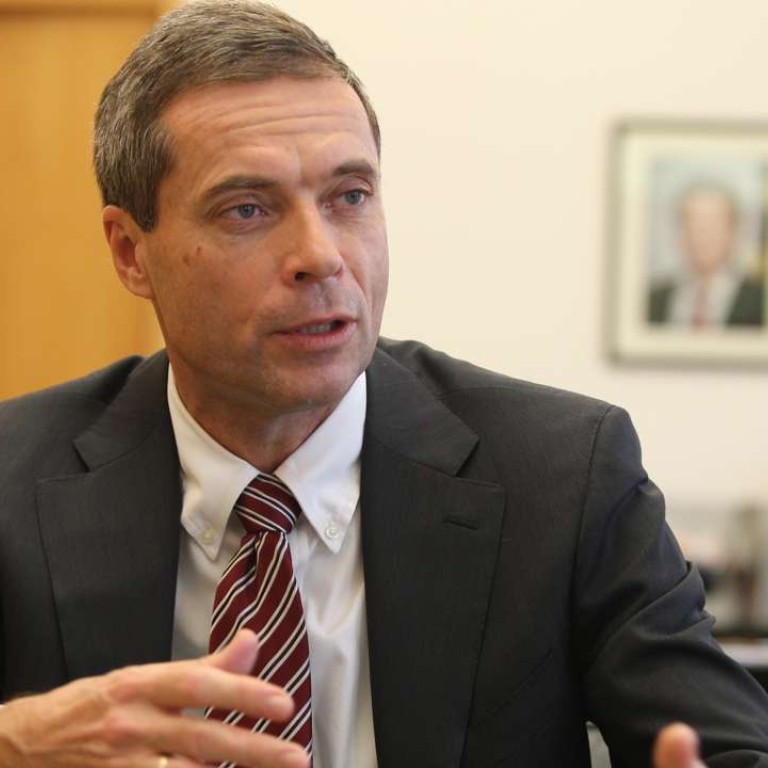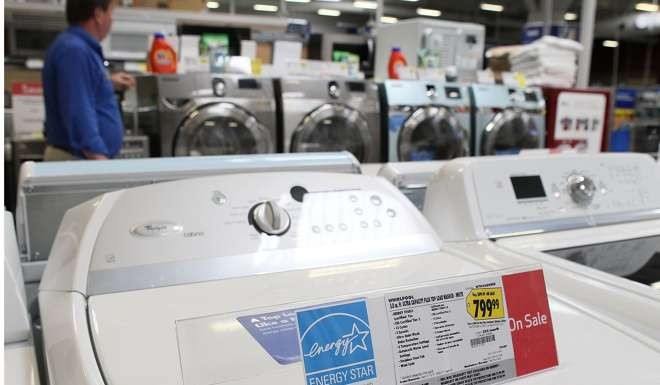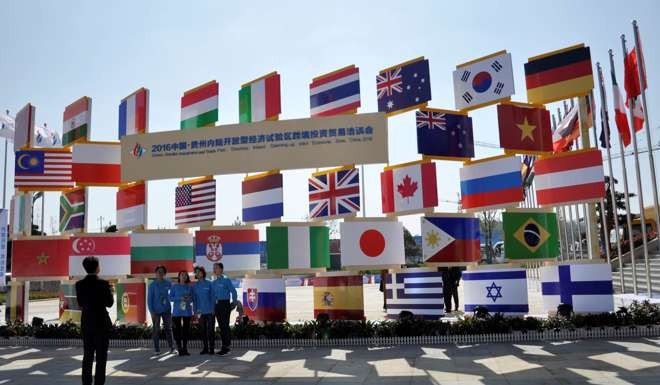
China not following through on market reform promises, says German ambassador
Michael Clauss hits out at lack of progress in market reforms and a reality that contradicts Beijing’s declared intentions
China isn’t following through on its market reform pledges as quickly as desired, German ambassador to China Michael Clauss said in an interview.
“I regret to note that the reform initiatives taken at the third plenum apparently have lost momentum,” Clauss told the South China Morning Post in Beijing.
The Communist Party, under the leadership of Xi Jinping, pledged three years ago that China would allow the market to play a “decisive” role in resources allocation. But the promises of adopting more market-oriented changes have mostly been shelved as Beijing beefs up intervention in economic activities, from coal mine operations to capital account controls.
“It seems that preserving social stability and discipline are the order of the day much more than implementing the necessary economic reforms,” Clauss said.
“Officially, China propagates a policy of open markets and unfettered access for foreign trade and investment. However, we note that very often [the] reality on the ground does not correspond to the declared intention of the Chinese government to facilitate foreign direct investment.

At a key policy meeting that ended on Friday, the leadership again highlighted “stability” and “financial risk prevention” as priorities for the coming year, sending a clear message that bold moves in market opening or liberalisation were off the table, observers said.
They are worried that Beijing is also unlikely to make painful cuts in the bloated state sector, for fear of possible social unrest, before the top leadership reshuffle at 19th party congress in the autumn.
Survey results of commerce chambers of China’s major trading partners have underscored the increasing difficulties of doing business in China, including ambiguous security laws, limited market access and an official favouring of domestic technology.
Last year Beijing launched “Made in China 2025” – a campaign to revamp its manufacturing sector, and establish a home-grown hi-tech powerhouse.
“We wonder whether this is what in the end China 2025 is all about: a future Chinese economy relying on its own, leaving no room for exchanges with its partners,” Clauss said, adding that plans for German companies to expand investment in China had fallen to a three-year low.
Since late last year, Beijing has strengthened controls on individuals and companies transferring funds overseas to stem capital outflows and defend the yuan’s exchange rate.
Legitimate fund transfers overseas have been delayed and it is taking longer to complete cross-border deals. Firms, especially state ones, are under greater scrutiny over outbound mergers and acquisitions.
Clauss said there was a lack of “clear understanding in the banking system” on how to implement the controls and such uncertainty “creates arbitrariness in the application”.

Ties between China and Germany, a core member of the European Union, face strain arising from Beijing’s increased protectionism and slow efforts to address overcapacity.
That excess capacity has complicated the issue of granting China market economy status, which Beijing wants but its major trading partners have so far resisted.
In a bid to find a solution, Premier Li Keqiang and EU leaders announced following a China-EU summit in July they would set up a joint team to check and monitor the progress of reducing capacity. The decision was met with strong criticism in the EU, where industrial associations argued the bloc was failing to defend domestic industries.
In September, the Group of 20 nations agreed to set up a global forum to address steel overcapacity by exchanging information and stepping up cooperation. Beijing claims it has met its annual targets for reducing steel and coal output ahead of schedule.
China said earlier this month the G20 and members of the Organisation for Economic Cooperation and Development held a meeting on November 15, and carried out “in-depth” discussions on a draft outlining the forum’s responsibilities.
“Up to now we do not see much progress in the establishment of the Global Forum,” Clauss said, adding that the pace of trimming excess overcapacity in China was slow.
“I wonder whether China is still committed to this pledge,” he said.

